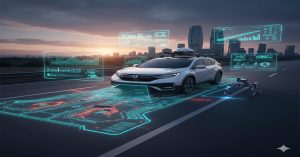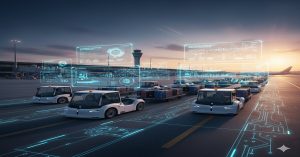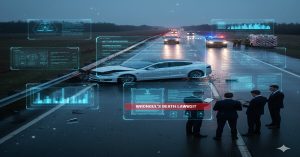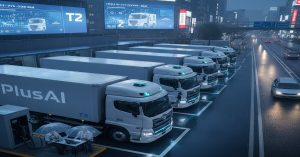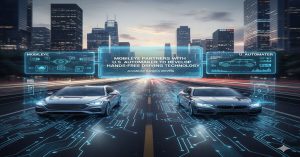ZF, a prominent player in the autonomous driving technology sector, has recently announced a strategic shift in its business focus. The company has decided to discontinue the development of its second-generation self-driving shuttle, originally unveiled at CES, designed for navigating mixed traffic in urban settings. The decision comes in light of the slower-than-expected progress in the autonomous shuttle market and the industry’s heightened need for cost efficiency amid ongoing crises and the shift towards e-mobility.
Instead of pursuing the development of entire autonomous transportation systems, ZF has opted to redirect its efforts towards providing premium engineering services and advancing the fundamental components essential for autonomous driving. The company intends to position itself as a leading supplier of autonomous driving technology while leveraging its expertise to offer valuable development services to clients in the automotive and mobility sectors.
Despite discontinuing the second-generation self-driving shuttle, ZF affirms its commitment to existing partnerships and projects related to its first-generation GRT shuttle. This initial model, designed for operation in segregated lanes, has proven successful in projects like Rivium in the Netherlands and will continue to be produced and sold by ZF’s US license partner, Oceaneering.
ZF’s decision to exit the development of complete autonomous shuttles is rooted in the challenging economic landscape, requiring a meticulous focus on cost-effectiveness across the industry. The company acknowledges the substantial upfront investments needed for autonomous transportation systems. It concludes that a shift in strategy towards a premium technology supplier role is more promising for future success.
In maintaining its position as an Original Equipment Manufacturer (OEM) supplier, ZF aims to concentrate on core technologies and better serve its OEM customers in the passenger car, commercial vehicle, and industrial sectors. The company has amassed a robust portfolio of advanced sensors, high-performance computers, specialized software solutions, and intelligent actuators over the years, forming the technical foundation for automated and autonomous functions across various vehicle categories.
ZF’s new business model emphasizes offering engineering services and technology solutions to meet the growing demand for next-generation mobility. The company anticipates that this shift will enable a more focused approach to core technologies, fostering innovation and collaboration with OEMs to enhance safety, efficiency, and comfort in vehicles with automated and autonomous capabilities.
Key partnerships and projects related to the GRT shuttle, including the successful operation in separated lanes in projects like Rivium, will continue as planned. Additionally, ongoing initiatives such as the RABus project, focused on researching automated bus operations in German cities like Mannheim and Friedrichshafen, align with ZF’s new business model and will proceed according to the original roadmap.
ZF’s aftermarket activities for autonomous vehicle fleets, encompassing services like maintenance, repair, and training, will also be sustained. This ensures ongoing support for the maintenance and operation of autonomous vehicles, contributing to the longevity and reliability of ZF’s technologies in real-world applications.


